Sacred Chickens
Menu
SACRED CHICKENS
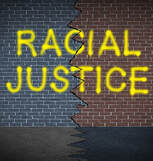 Readings on Racism by Sacred Chickens Staff This is not really a political site in one way, but as you know if you’ve read through our pages for long, we believe that all stories are political in that they give us a lens that helps us navigate real life, our expectations, and how we think we and others should be treated. Sometimes, we like to share opinions and stories that relate to current events. Here are some links we are working through this week.
In addition to the articles Jarad and I have found enlightening, a neighbor of mine shared some links with the neighborhood. Her recommended readings can be accessed under the label Anti-Racism Resources. (She shared the YouTube video that made this list as well.) We all need to stop and ask ourselves sometimes if we’re listening. Are we hearing other’s stories and perspectives? All of these links are food for thought. Read them. Listen to them. If they’re different from the perspective you usually hear, all the better.
0 Comments
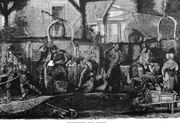 The Artist Under the Mills by Rebecca Harding Davis Essay by Jarad Johnson This review is of an older book, but I think the themes are still pertinent. This book is definitely worth a read. It’s a layered book and there’s an interesting perspective on feminine versus masculine traits as well, but for the purposes of provoking thought, I’ve focused on the battle between corporate need for capital and the individual need for fulfillment through art and beauty.
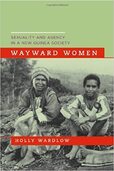 Wayward Women Author, Holly Wardlow by Jarad Johnson This is a book that I read for my Anthropology class this semester (when we were still in actual classrooms!) and one that I thoroughly enjoyed. I don’t know about you but learning about different cultures has always fascinated me. It not only reveals how different from each other, but also the base humanity that we all share.
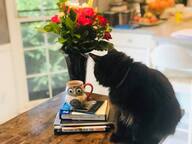 Political Reading by Sacred Chickens Staff It’s election season again…get out your tums, aspirin, and a bottle of your favorite flavored brandy – your election survival kit, as we like to call it here at Sacred Chickens. The other thing we do here to keep calm and decide how to vote is read. No surprise. Here’s a list of some of the books we find intriguing. Some of these books bring insight to current events, some we ingested long ago, and they have become part of our internal political microbiome. All of them illuminate some aspect of political life we think you’ll find helpful or at least interesting. What books are you going to read this election season? 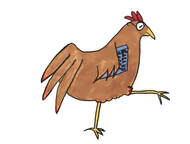 Today, Jarad is tackling the topic of diversity in literature, the canon, and what makes a book worthy of being canonized. What are the benefits of diverse reading and what can the publishing industry learn from that? We hope you enjoy his thoughts on the topic and happy reading! I was reading an excerpt from an article in my Feminist Theory textbook last semester. In it, the author talked about how, in college, she only read male authors, and she felt that she was forced to alter her perspective and view the world through a warped perspective, and she didn’t much care for it. I have to admit, my first reaction when I read that was one of irritation. Are we not supposed to see the world in different ways through literature, and are we not supposed to look through another person’s eyes in a novel? Yes, we are, but upon further reflection I don’t think that was her point.
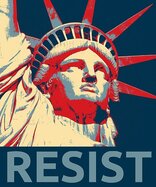 Politics and literature are undeniably intertwined, and always will be. Today, Jarad is sharing his thoughts on their connection, and their role in protest. He asks the question, "If you don’t like or agree with a particular piece of literature, you don’t have to read it, and ideas that challenge your beliefs and ideologies are in fact a good thing. If your truth can’t handle any dissent, is it true?" Since January of 2016, we seem to be in a constant state of political uproar. It has been exhausting but necessary. This is not the first time, nor will it be the last. Resistance to ideologies that you find abhorrent is always a part of politics, and arguably everyday life, but I can’t remember a time quite like this. Granted, I’m young, but it’s still jarring to see such events occurring in 2019, and to lose friends over politics. People are polarized, and some lament this fact and worry about a society that cannot abide differing opinions. On the other hand, sometimes there’s good reason for that. For example, in the case of the recent resurgence of Neo-Nazism, there’s no in between on that issue. You either abide them or you don’t. There are times when choices become stark.
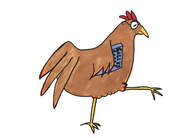 Today Jarad is sharing his thoughts on the literary canon. Let us know your thoughts as well! I went through a phase in 8th or 9th grade, where it was my mission to read all the “classic” books, something I later came to know as the literary canon. I got through quite a few- Charles Dickens, Alexandre Dumas, Salinger, Harper Lee, Mark Twain, I read them all. Was this a good or bad thing for me to do? I enjoyed some of them. I learned something. I was free to read other things while my classmates slogged through their assignments, at least when one of the ones I’d read showed up on the syllabus. But sometimes now I question why I did it.
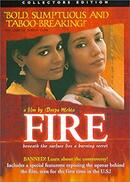 Here is an essay I wrote on the movie Fire by Deepa Mehta Fire is an Indian Film that I watched as part of my Feminist Theory class and I wanted to share some thoughts I had about it on the blog. I think it’s definitely worth a watch. Although there are certainly cultural differences, much of the underlying assessment of patriarchal power structures has global significance. The following is a paper that I wrote exploring the ideas in the movie - in case you’re wondering about the slightly more academic style than usual.
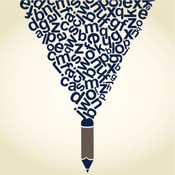 Ok. I realize many people think that grammar is a boring topic, but this is not an essay telling you the importance of the parts of speech or advocating for more grammar worksheets. This is adapted from an essay I wrote for a grammar and linguistics class talking about problems with grammar education and how to effectively teach it. Grammar is something everyone is taught in school, but many people still struggle with. Think about your own experience in English class. Didn’t it seem like you spent an inordinate amount of time thinking about commas and trying to remember the difference between adverbs and adjectives? Maybe it just seems that way because it was so boring.
 Depression in The Yellow Wallpaper by Mekayla Trout “The Yellow Wallpaper” is traditionally considered a feminist text, with scholars reading feminism in the way the narrator rips down the wallpaper that is symbolic of the heavy expectations on nineteenth century women. However, Charlotte Perkins Gilman’s work also explores the experience of a mother suffering from what we now call postpartum depression; it reminds us that mental illness has always been a legitimate problem and it makes the story relatable even today. Gilman’s narrator experiences the pariah-hood that mothers experienced before the discovery of postpartum depression, and still often experience today.
|

Click Photo above to buy ebook or paperback from Amazon.
Here's the link to Barnes and Noble Or order through your favorite independent bookstore! Categories
All
|
 RSS Feed
RSS Feed